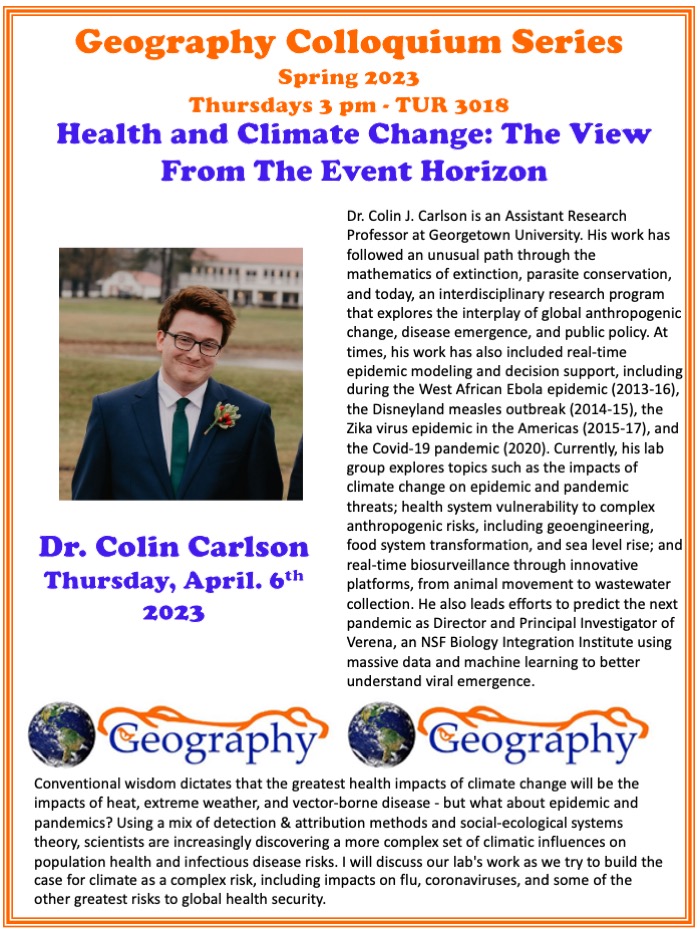 Speaker: Dr. Colin Carlson
Speaker: Dr. Colin Carlson
Assistant Research Professor
Center for Global Health, Science, and Security
Georgetown University
Thursday, April 6, 2023
3:00-3:50 PM (Period 8)
Turlington Hall 3018 and Zoom
University of Florida
Abstract: Conventional wisdom dictates that the greatest health impacts of climate change will be the impacts of heat, extreme weather, and vector-borne disease – but what about epidemic and pandemics? Using a mix of detection & attribution methods and social-ecological systems theory, scientists are increasingly discovering a more complex set of climatic influences on population health and infectious disease risks. I will discuss our lab’s work as we try to build the case for climate as a complex risk, including impacts on flu, coronaviruses, and some of the other greatest risks to global health security.
Biography: Dr. Colin J. Carlson is an Assistant Research Professor at Georgetown University. His work has followed an unusual path through the mathematics of extinction, parasite conservation, and today, an interdisciplinary research program that explores the interplay of global anthropogenic change, disease emergence, and public policy. At times, his work has also included real-time epidemic modeling and decision support, including during the West African Ebola epidemic (2013-16), the Disneyland measles outbreak (2014-15), the Zika virus epidemic in the Americas (2015-17), and the Covid-19 pandemic (2020). Currently, his lab group explores topics such as the impacts of climate change on epidemic and pandemic threats; health system vulnerability to complex anthropogenic risks, including geoengineering, food system transformation, and sea level rise; and real-time biosurveillance through innovative platforms, from animal movement to wastewater collection. He also leads efforts to predict the next pandemic as Director and Principal Investigator of Verena, an NSF Biology Integration Institute using massive data and machine learning to better understand viral emergence.
All are welcome to attend.
For more information, email Dr. Sadie Ryan at sjryan@ufl.edu